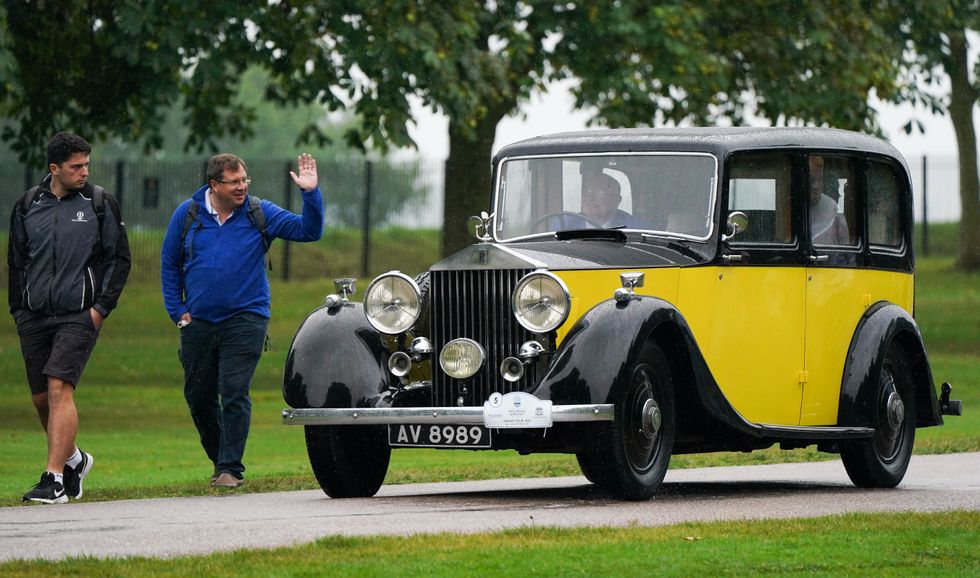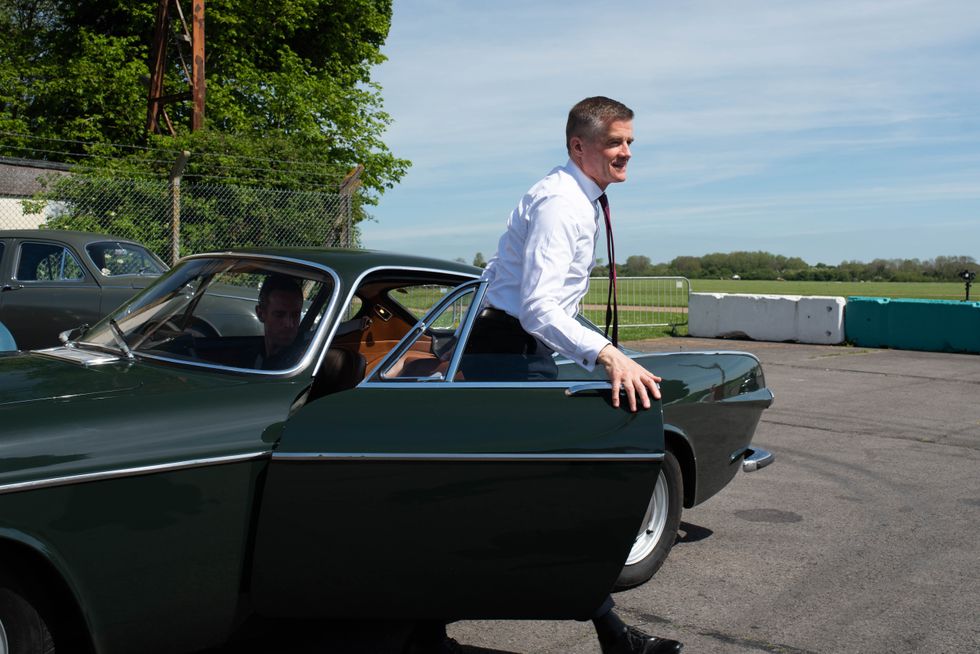Classic car experts have suggested the use of 'one-off' safety checks to improve road safety
GETTY
Vehicles that were first registered more than 40 years ago do not need an MOT test
Don't Miss
Most Read
Trending on GB News
Classic cars could face safety checks in the future as part of new driving plans to ensure the vehicles are road legal under proposals set out by experts.
The Department for Transport first launched the call for evidence in May to hear the opinions of the industry about whether any potential changes to how historic, classic, rebuilt and electrically converted vehicles are registered with DVLA.
As part of this, drivers and industry experts were asked whether policies needed to be updated to modernise the sector, following criticism of the DVLA's treatment of classic car matters.
While the call for evidence closed on July 4, the Government will assess the industry's responses and see which potential changes could be made in the coming months and years.
Do you have a story you'd like to share? Get in touch by emailingmotoring@gbnews.uk

Classic cars do not need to have an MOT test
PAThe Federation of British Historic Vehicle Clubs (FBHVC) responded to the original call for evidence from the Department for Transport and DVLA suggesting potential solutions to current issues.
As part of one question, the FBHVC suggested using a "one-off safety check" if major restoration or repair work has been undertaken.
This was in response to a question asking whether a new type of safety check should be in place which takes into account the age of a classic vehicle.
It highlighted how this could be a more in-depth inspection than the standard MOT test, which could potentially include "some degree of dismantling to permit full access to all parts of the vehicle."
The FBHVC said the whole vehicle should be assessed with reference to the technical standards applicable when it was new, similar to how the MOT test operates.
The organisation concluded, saying: "Individual Vehicle Approval which requires modern technical standards is entirely inappropriate and not suitable in this context."
Currently, vehicles that were first built or registered more than 40 years ago do not need to get an MOT test.
The same applies to a vehicle that has had "no substantial changes" in the last 30 years, including replacing the chassis, body, axles or engine to change how the vehicle works.
Vehicles that were first built before January 1, 1984, are also able to stop paying vehicle tax from April 1, 2024.
If someone is unsure when the vehicle was built, they can avoid paying tax if it was registered before January 8, 1984.
While drivers have to apply to get a vehicle tax exemption, they do not need to apply to stop getting an MOT for their vehicle each year.
However, it must be kept in a roadworthy condition or drivers could face a £2,500 fine and three penalty points on their licence for using a vehicle in a dangerous condition.
LATEST DEVELOPMENTS:
 Mark Harper said great work was being done to support the classic car industryDEPARTMENT FOR TRANSPORT
Mark Harper said great work was being done to support the classic car industryDEPARTMENT FOR TRANSPORTSpeaking to GB News at the time of the call for evidence, former Transport Secretary Mark Harper, said: "One of the things that we said we want people to respond to in this call for evidence is about the whole registration of classic cars.
“So, if people have views about where that cut-off point should be and what should count as a classic car and what shouldn't, they should absolutely feed that back.
“I want to hear from GB News viewers. I want to hear from people who are enthusiasts. I want to hear from people that work in the industry. I want people involved in classic car clubs."








